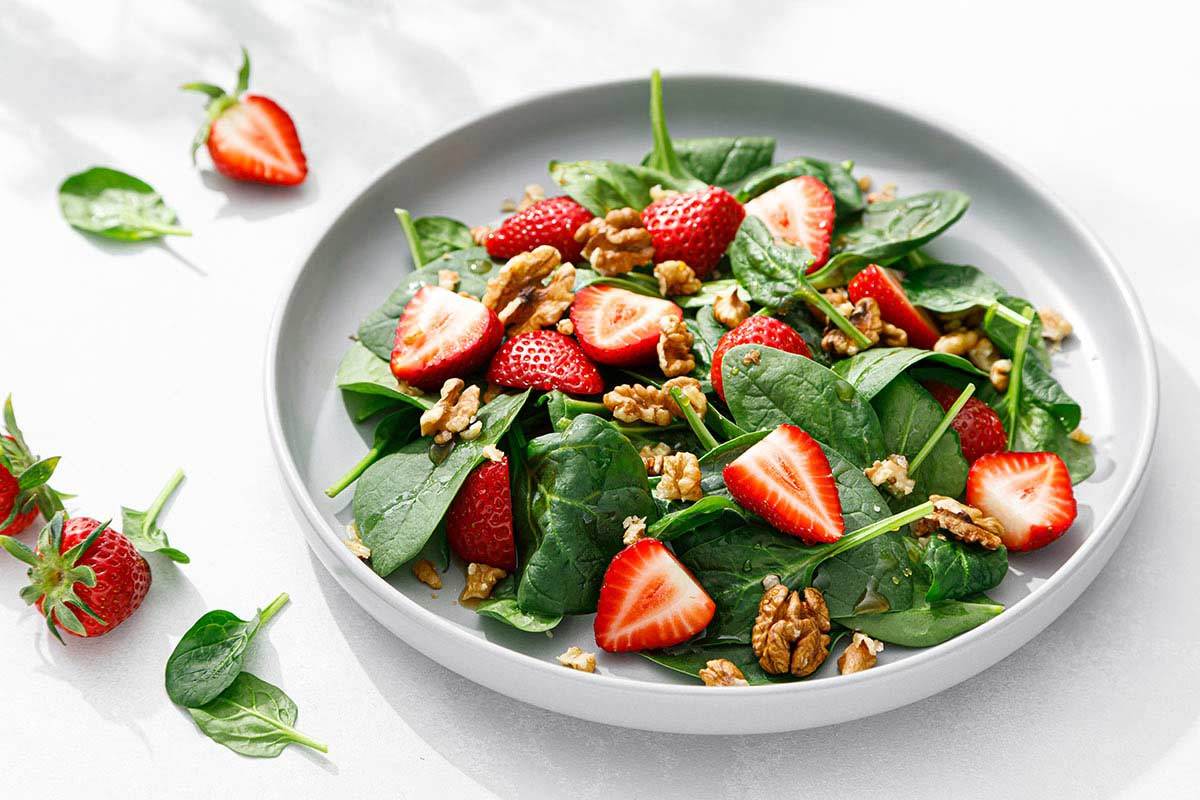
Superfoods to add to your diet to naturally improve eye health and vision
Superfoods are foods that tick many of the nutritional boxes all on their own. They provide our necessary nutrients and vitamins, without the need for taking supplements. Healthy lifestyle habits, including a diet of essential nutrients, can boost your immune system, lower your risk of certain diseases, and even combat common vision problems.
You read that right! There are several superfoods that naturally provide the necessary nutrients specific to eye health and better vision. Some of these nutrients also help ward off age-related eye diseases such as glaucoma and cataracts.
Essential nutrients and vitamins for better eye health and the superfoods that make it easy
Many of these vitamins may be found in supplements taken on a daily basis. However, including these superfoods as part of an overall healthy diet can ensure that one gets the recommended allotment.
Vitamins that are good for eye health and vision include A, B1, C, and E. In addition, our eyes also need lutein and omega-3 fatty acids. Each of the superfoods listed below supplies a number of nutrients, many of which support eye health and vision. Carrots, for instance, provide eye-friendly vitamins A, C, and also lutein.
Vitamin A and Beta carotene
Vitamin A benefits the eyes and vision in several ways. The biggest advantage for the eyes is its ability to prevent age-related Macular Degeneration (MD), which is the leading cause of irreversible vision loss in seniors.
Vitamin A also boosts the immune system, reduces eye inflammation, and may help prevent night blindness. Beta carotene, which gives carrots and pumpkins their orange color, is converted to Vitamin A when consumed.
- Carrots: According to the FDA, a single raw carrot provides 100% of the daily health requirement of vitamin A
- Pumpkin: One cup provides 200% of the recommended daily requirement
- Spinach and Kale: Cooking these leafy greens increases their already high beta-carotene content dramatically
Vitamin B1 (Thiamine)
Recent studies have linked thiamine with cataract prevention and a potential treatment for diabetic retinopathy when used during its early stages.
- Fish: Fish is a rich source of protein, omega-3 fatty acids, iron, and thiamine
- Beans: A great source of protein and fiber, beans are also high in vitamin B1
Vitamin C
Vitamin C, or ascorbic acid, is essential to the growth, development, and repair of human tissue, the formation of cartilage, absorption of iron, and immune health. For eye health, its antioxidant properties help protect the eyes from the damaging effects of free radicals and may prevent cataracts.
- Citrus fruits: oranges, grapefruit, kiwi, and strawberries are all excellent sources of Vitamin C
- Spinach: spinach and kale both boast significant amounts of vitamin C
- Carrots: in addition to vitamin A, carrots contain vitamins C and B6, calcium, iron, lutein, and potassium
Vitamin E
Vitamin E, like Vitamin C, helps protect the eyes from those damaging free radicals, which can lead to age-related eye conditions over time.
- Eggs: a versatile source of protein and other nutrients, including vitamin E
- Seeds and Nuts: many seeds and nuts are exceptionally vitamin-E-rich foods
Lutein
Like vitamin A, which is in the same carotenoid family, lutein has anti-inflammatory properties and can help improve or prevent age-related macular degeneration.
- Carrots: add lutein to the many eye-health nutrients present in carrots
- Eggs: providing the trifecta for preventing MD, eggs have lutein and vitamin A and E
Omega-3 Fatty Acids
Omega-3 Fatty Acids are an important part of a healthy diet. They assist in the absorption of Vitamin A, which is fat-soluble. According to the American Academy of Ophthalmology, Omega-3 fatty acids have been found to prevent dry eyes and MD in adults. They also help eyes drain the way they are supposed to, which helps prevent glaucoma. In addition, they have been associated with the prevention of painful pressure in the eyes and retinopathy.
- Fish: eat this superfood two to three times per week for eye health
- Cooking Oils: flaxseed, soybean, and canola oil are great sources of omega-3s
Promote eye health with superfoods and other preventative measures
Eating foods rich in vision-friendly nutrients is so important for maintaining your eye health. To maximize your eye health, pair these superfoods with other preventive measures, such as drinking lots of water, avoiding eye strain, wearing proper eyewear, and attending comprehensive eye exams.
At NeoVision Eye Center, we partner with all of our Bay Area patients by providing comprehensive vision care at our Union City clinic. If you haven’t received an eye exam in more than a year or are experiencing any unusual symptoms, contact NeoVision Eye Center today.
Take your first step towards healthier vision!
Schedule a free consultation and follow up comprehensive eye exam today.
"*" indicates required fields





